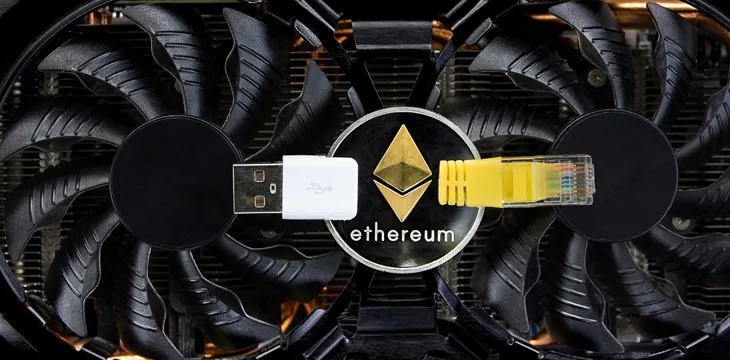|
Getting your Trinity Audio player ready...
|
In a meeting that was held last Friday by Ethereum core developers, the group turned its attention to the subject of application-specific integrated circuit (ASIC) mining equipment. The developers have reportedly reached a decision to implement a new proof-of-work (PoW) algorithm that could potentially improve the efficiency of GPU-based (graphical processing unit) mining, shying away from ASIC-based activity. This could be yet another nail in the coffin for the once-great Chinese cryptocurrency mining equipment manufacturer Bitmain, which has long supported and manufactured ASIC equipment.
ASIC-based miners have long been considered by some as being against the concept of cryptocurrencies. ASIC miners allow for greater mining power, which could lead to a single entity, or a small group of entities, taking control over operations, producing a significant amount of centralization. Bitmain started as one of the largest manufacturers of ASIC-based equipment, but had a terrible time keeping its momentum going during the softening of the crypto markets last year.
Last Friday’s meeting, which can be seen in a YouTube video, saw developer Hudson Jameson mention that he has received “very little dissent” about the idea to implement “ProgPoW,” Ethereum’s PoW alternative. It has already been put to test on the Gangnam testnet and, so far, seems to be working as anticipated.
"We are tentatively going forward with #progpow" – assuming no major issues are found during testing. – @hudsonjameson on the #AllCoreDevs call today.
We are still discussing how long we need to implement and test.
— Lane 'one meme behind' Rettig (@lrettig) January 4, 2019
Two of the developers behind the ProgPoW project added that the system would make it “a little bit harder” for ASIC mining equipment to operate and that it has also been able to stabilize mining hashrates. Martin Holst Swende, an Ethereum security lead, believes that the system will be more resistant to ASIC equipment, as well as certain accelerators that could be used in conjunction with GPU-based miners. He asserts that switching to ProgPoW would “postpone the level of ASICs on our network for at least a year on our network, or perhaps more.”
As Bitmain has dumped a serious amount of money into research and development for ASIC-based mining equipment (after it reportedly stole the design for one of its first mining rigs), the company is finding increasing barriers to its technology. Already faced with questions over its financial solvency, product functionality, various lawsuits and doubts about who’s in charge, Bitmain is poised to topple like a house of cards.

 07-15-2025
07-15-2025 





